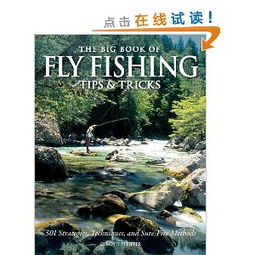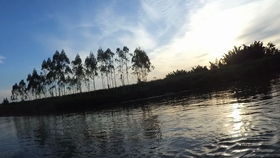Content:

Introduction: Catching fish can be a rewarding and enjoyable activity, whether you're an experienced angler or a complete beginner. However, if you've never picked up a fishing rod before, the thought of trying to catch fish might seem daunting. Don't worry; even if you're not a natural fisherman, there are several techniques and tips you can employ to increase your chances of success. In this article, we'll explore essential fishing tips for beginners who don't know how to fish, helping you to start reeling in those fish in no time.
Choose the Right Equipment: Before you start fishing, it's crucial to have the right equipment. Here's a list of essential gear for beginners:
- A lightweight spinning rod and reel: This combination is ideal for beginners due to its ease of use and versatility.
- Monofilament line: Choose a line with a thickness that matches the size of the fish you're targeting.
- Hooks: Select hooks that are appropriate for the type of fish you want to catch.
- Lures or bait: Depending on your fishing location and the species of fish, you'll need to choose the right lures or bait.
- Floats, sinkers, and swivels: These accessories help you control the depth and movement of your bait.
Learn the Basics of Casting: Casting is the process of throwing your lure or bait into the water. Here's a step-by-step guide to help you get started:
- Hold the rod with a comfortable grip, using your index and middle fingers to hold the reel.
- Load the line by winding it onto the reel until you have about 10-15 feet of line out.
- Point the rod tip towards the target area and lift the rod back, creating a loop in the line.
- Swing the rod forward, releasing the line as you do so. The weight of the lure or bait will pull the line through the loop, casting it into the water.
Understand Fish Behavior: To catch fish, you need to understand their behavior. Here are some key points to consider:
- Fish are more active during dawn and dusk, so these are the best times to fish.
- Fish often feed in areas with structure, such as rocks, logs, or weed beds. Look for these features when choosing your fishing spot.
- Fish are sensitive to noise and vibrations, so be as quiet and gentle as possible when handling your equipment.
Use the Right Bait or Lure: The type of bait or lure you use can significantly impact your success. Here are some tips:
- If you're fishing for freshwater fish, natural bait like worms, insects, or crustaceans can be effective.
- For saltwater fishing, artificial lures like spoons, jigs, or plugs can mimic the movement of prey fish.
- Experiment with different baits and lures to see what works best in your fishing environment.
Patience is Key: Fishing requires patience, as it can take time to catch fish. Here are some tips to help you stay focused:
- Take your time to set up your equipment and find a good fishing spot.
- Stay still and be patient while waiting for a bite.
- Don't get discouraged if you don't catch anything right away. Fish can be unpredictable, and it's all part of the experience.
Learn from Others: If you're new to fishing, consider joining a local fishing club or attending a fishing workshop. You can learn valuable tips and techniques from experienced anglers, and you might even make new friends who share your passion for fishing.
Conclusion: Catching fish doesn't have to be a challenging task, even if you're a beginner. By following these essential tips and practicing your skills, you'll be well on your way to becoming a successful angler. Remember that fishing is a journey, and with time and experience, you'll improve your techniques and enjoy the thrill of the catch even more. Happy fishing!












